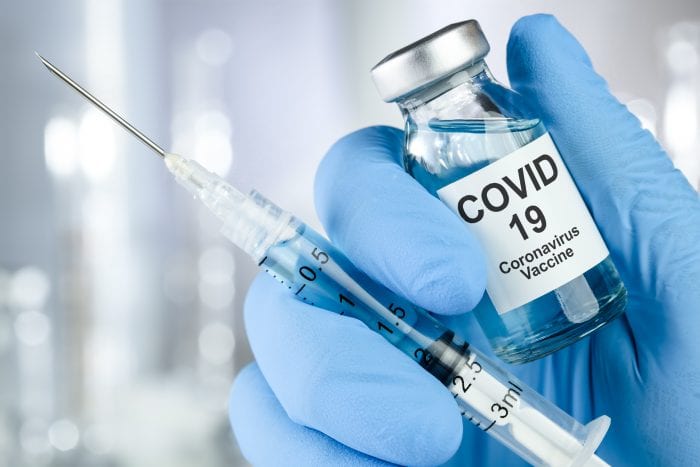Doctors discuss potential mix-n-match COVID boosters
With the Food and Drug Administration expected to vote this week on boosters for Johnson & Johnson and Moderna vaccines for COVID-19, local doctors suggested the current studies may support some switching, particularly for those who received a single dose of Johnson & Johnson.
“There is preliminary data that has demonstrated that mixing and matching the vaccines may be beneficial,” said Dr. Sunil Dhuper, chief medical officer at Port Jefferson’s St. Charles Hospital.
Indeed, recent studies suggested that people who received the J&J vaccine had a considerably higher increase in their antibody response from a Moderna booster than from a second J&J shot.
“There may be some merit” to switching from the traditional method J&J deployed to create an antibody response to the mRNA-based approach from Pfizer-BioNTech and Moderna, Dhuper added.
Dr. Adrian Popp, chair of Infection Control at Huntington Hospital, added that data from studies with J&J are “showing that folks who received the initial J&J vaccine may benefit from receiving a booster with Pfizer or Moderna as this may lead to a very high immune response.”
As for side effects from the boosters, Popp explained that the reactions are similar to those for the initial series of vaccinations.
In an email, Popp noted that the Moderna booster is half the dose of the original shots, which “may lead to a decrease in side effects.”
Dr. Susan Donelan, medical director of the Healthcare Epidemiology Department at Stony Brook Medicine and assistant professor of Infectious Diseases in the Renaissance School of Medicine at Stony Brook University, is pleased that “many people are quite eager to obtain boosters. This bodes well for enhanced protection as we enter the indoor/ holiday season.”
In another encouraging sign, the percentage of people who have tested positive for COVID-19 in Suffolk County continues to decline, with the seven-day average falling to 3% as of Oct. 19, which is down from 4.2% a month earlier, according to the Suffolk County Department of Health.
Sporting events
Meanwhile, people have been attending college and professional sporting events in large numbers, often without masks. These competitions haven’t yet produced documented superspreader events.
“Outdoor venues overall provide a reduced opportunity for spread compared to indoor events,” Donelan explained in an email. “If proof of vaccination or a negative test within a set time frame (e.g. 72 hours) before the event is required for entry, it is reasonable to anticipate that inadvertent spread can be limited.”
Other health care professionals also suggested that outdoor events, despite thousands of people standing and shouting to urge on their teams, presented lower risk than indoor gatherings.
“In an outdoor event, the virus would get diluted within seconds,” said Dhuper. “You’re not going to get a high dose” of any viral particles at such a gathering.
As for the bigger picture, Popp said he is “happy to report that, as of Oct. 6, the fully vaccinated rate is 69% in Nassau and 65% in Suffolk. It is not as high as we would like to see, but it is an increase of 7% to 8% since July 29.”
Health care professionals urged residents who haven’t already done so to get a flu shot soon.
“With all the attention on COVID vaccinations, masks will come off as people are reassured that they are safer in regards to COVID, and flu will ‘take advantage’ of this scenario,” Donelan explained. “We need to be vaccinated against both viruses.”







